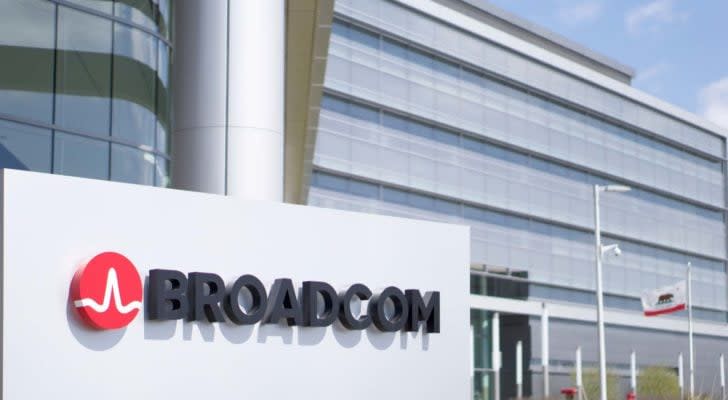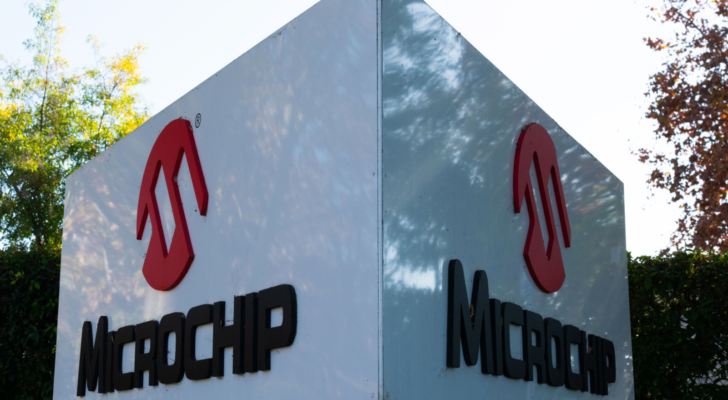Investor Favorites: 7 Dividend Stocks with Strong Buy Ratings
To be quite blunt about the present economic backdrop, you don’t need many excuses to seriously consider strong-buy dividend stocks. By that, I’m referring to public companies that provide passive income while also benefiting from the top rating possible among covering analysts.
Fundamentally, dividend players should represent a key portion of your portfolio regardless of outside circumstances. When it comes to betting on the market, it’s a numbers game. Despite what you may hear from equity gurus, the reality is that losses on Wall Street are inevitable. However, target enough quality enterprises and you should win out in the long run. That’s the allure of strong-buy dividend stocks.
However, current circumstances invigorate the concept of passive income. Despite strong sales from Black Friday and Cyber Monday, consumer sentiment has been fading in recent months. Obviously, that’s a contradictory sign that warrants closer examination. Also, major corporations have announced layoffs, which doesn’t speak to robust upside in the future.
InvestorPlace - Stock Market News, Stock Advice & Trading Tips
To be fair, nobody knows what’s going to happen in the future but that’s also the point. Heading into the unknown, you’ll probably want these strong-buy dividend stocks.
KBR (KBR)

Source: IgorGolovniov/shutterstock.com
At first glance, KBR (NYSE:KBR) might not seem that appealing as a candidate for strong-buy dividend stocks. Looking at its financials, nothing truly distinctive pops up. It has ho-hum stability in the balance sheet while its long-term revenue trend runs a bit below sector average. And I can’t say it’s consistently profitable either. So, what does an investor get for the forward earnings of 14.4X, which is a modest premium?
In my opinion, relevance. According to its public profile, KBR operates in the fields of sciences, technology and engineering. Further, it brings solutions to multiple markets, including aerospace, industrial, intelligence and defense. And it’s this latter point that may appeal to patient investors. With the geopolitical environment spiraling, demand for defense-related products and services will likely rise.
Now, rising would not be a term I would use for KBR’s forward dividend yield of 1.05%. That’s quite low compared to the sector average 2.36%. However, analysts rate KBR a unanimous strong buy with a $69.67 average price target. Thus, the capital gains potential could make up for the low yield.
Lamb Weston (LW)

Source: Shutterstock
Compared to KBR above, Lamb Weston (NYSE:LW) more immediately makes an enticing case for strong-buy dividend stocks. For one thing, shares trade at a trailing-year earnings multiple of 14.1X. In contrast, the sector median stat lands at 19.14X. And it’s not a powderpuff figure either. For example, the company’s three-year revenue growth rate lands at 12.6%, above 68.51% of its peers.
Also, another important factor is that the enterprise – a food-processing company – is consistently profitable. In the past year, Lamb Weston’s operating and net margins hit 17.8% and 17.18%, respectively. Both stats run far higher than the underlying sector average. In turn, the food specialist pays a dividend but it’s not that much: only a forward yield of 1.15%.
Nevertheless, one could look at this matter optimistically and point to the ultra-low payout ratio of 17.87%. However, I like to think that relevance plays a part in the narrative. Basically, discretionary spending may fall in favor of the necessities.
Analysts also peg LW a unanimous strong buy with a $128.80 average price target.
Broadcom (AVGO)

Source: Sasima / Shutterstock.com
One of the top tech firms in the world, Broadcom (NASDAQ:AVGO) is a multinational designer, developer, manufacturer and global supplier of semiconductor and infrastructure software products. Per its public profile, the company serves the data center, networking, software, broadband, wireless, storage and industrial sectors. While tech plays tend to be volatile in downcycles, Broadcom offers a wide range of relevancies.
Another factor that plays into AVGO’s case as one of the strong-buy dividend stocks is the robust profitability. Over the past decade, Broadcom printed net income in nine of the years. Also, it prints a robust operating margin of 45.69%. That’s more than 98% above the median for the semiconductor industry. And wouldn’t you know it, AVGO trades at 21X forward earnings, which is a slight discount.
As for the topic at hand, AVGO offers a forward yield of 1.96%. That’s better than the top two but not by very much. Still, the other point is that analysts rate shares a consensus strong buy with a max target of $1,200.
Microchip Technology (MCHP)

Source: Michael Vi / Shutterstock.com
Specializing in advanced tech components, Microchip Technology (NASDAQ:MCHP) manufactures microcontroller, mixed-signal, analog and Flash-IP (internet protocol) integrated circuits. Additionally, Microchip offers a broad spectrum of products, including embedded security and radio frequency (RF) devices. If you’re thinking that other investors recognize the relevancy here, you’re right. Since the January opener, MCHP gained 21% of equity value.
Of course, that’s not nearly as stratospheric as some of the other tech plays we’ve seen. Nevertheless, the company benefits from its candidacy as one of the top strong-buy dividend stocks. While it lacks the pizzazz of the heavily hyped names, the company symbolizes a busy stagehand. It might not be the star but it’s important to the ecosystem. Also, it trades at a discounted 15.82X forward earnings.
As a passive income provider, Microchip unsurprisingly enjoys consistent profitability. Now, the reward isn’t that high but it’s decent at 2.12%. Keep in mind that the tech sector’s average yield is only 1.37%. Simultaneously, analysts peg MCHP a strong buy with a high-side target of $110.
Dine Brands Global (DIN)

Source: Shutterstock
Based in Pasadena, California, Dine Brands Global (NYSE:DIN) is a food and beverage company. Found in 1958 as IHOP, it operates franchised and corporate owned full-service restaurants: Applebee’s Neighborhood Grill & Bar, Fuzzy’s Taco Shop and the aforementioned IHOP. While the company offers relevance as a low-cost leader in the eating establishment industry, it also faces uncertainties.
Essentially, consumers are still struggling against the dual headwinds of high inflation and high borrowing costs. Adding to the woes, the previously mentioned mass layoffs don’t help instill confidence. So, it’s not particularly surprising that DIN stock incurred red ink this year. However, the steepness of the decline seems rather harsh, possibly making a case for itself among strong-buy dividend stocks.
For starters, DIN trades at a lowly 6.88X forward earnings. For context, the sector median comes in at 18.37X. Nevertheless, the company enjoys a three-year revenue growth rate of 2.7% (above 62% of its peers). And it also supports a much higher-than-average net margin of 9.07%.
In closing, the forward yield lands at 4.7% while analysts rate shares a strong buy with a $59 target.
Independence Realty Trust (IRT)

Source: Vitalii Vodolazskyi / Shutterstock
Headquartered in Philadelphia, Pennsylvania, Independence Realty Trust (NYSE:IRT) is a real estate investment trust (REIT). Per its website, the company owns and operates multifamily apartment properties across the country. In particular, it focuses on non-gateway (non-primary) U.S. markets, including Atlanta, Louisville, Memphis and Raleigh. On paper, Independence appears relevant as many young people have moved to the areas the company covers for cost-of-living reasons.
Still, IRT presents high risks for speculators. Since the start of the year, IRT lost 18% of equity value. That’s steep considering the core relevance of the underlying narrative – you’ve got to live somewhere. Still, the major positive is business predictability. Since 2010, the company has consistently witnessed consecutive annual sales growth.
In Q3, Independence posted revenue of $168.6 million, up 5% against the prior-year quarter. So, it appears that 2023 will represent a continuation of the trend. For passive income, it carries a forward yield of 4.73%. Now, the payout ratio is high at 205.13% but REITs generally tend to run hotter-than-average metrics.
Lastly, analysts peg IRT a unanimous strong buy with a $17.83 price target.
Runway Growth Finance (RWAY)

Source: Shutterstock
Hailing from Chicago, Illinois, Runway Growth Finance (NASDAQ:RWAY) bills itself as a growing specialty finance company focused on providing flexible capital solutions to late-stage and growth companies seeking an alternative to raising equity. By no means should you consider RWAY as an easy opportunity among strong-buy dividend stocks. Analysts do like it but that’s where much of the encouraging news ends.
Presently, the company carries a market capitalization of $509 million. Given the headwinds in the broader economy, Runway could face difficulties in its stated directives. To be fair, RWAY is trending along modestly right now, with shares up 4% in the trailing 52 weeks. Still, with the unpredictability of financing growth endeavors, the forward trajectory remains questionable.
Additionally, Runway enjoys solid long-term revenue growth. Also, RWAY trades at a forward earnings multiple of 6.15X, below the sector median 7.82X. Where I’m getting a bit skeptical is its forward yield. At 12.67%, that’s tempting but maybe too tempting.
However, the company enjoys a consensus strong buy rating among top-tier analysts. Thus, it could be one of the strong-buy dividend stocks to gamble on.
On the date of publication, Josh Enomoto did not have (either directly or indirectly) any positions in the securities mentioned in this article. The opinions expressed in this article are those of the writer, subject to the InvestorPlace.com Publishing Guidelines.
A former senior business analyst for Sony Electronics, Josh Enomoto has helped broker major contracts with Fortune Global 500 companies. Over the past several years, he has delivered unique, critical insights for the investment markets, as well as various other industries including legal, construction management, and healthcare. Tweet him at @EnomotoMedia.
More From InvestorPlace
Musk’s “Project Omega” May Be Set to Mint New Millionaires. Here’s How to Get In.
The #1 AI Investment Might Be This Company You’ve Never Heard Of
The Rich Use This Income Secret (NOT Dividends) Far More Than Regular Investors
The post Investor Favorites: 7 Dividend Stocks with Strong Buy Ratings appeared first on InvestorPlace.
